Featured Photo Above:
Addie Joos Benefit Game, July 24, 1911
(Color Restoration by Chris Whitehouse of They Played in Color website)
Baseball History Comes Alive Now Ranked As a Top Five Website by Feedspot Among All Baseball History Websites and Blogs!
(Check out Feedspot's list of the Top 35 Baseball History websites and blogs)

Guest Submissions from Our Readers Always Welcome! Click for details
Subscribe to Old Baseball Photos and Essays for automatic updates (sign-up block found in right side-bar)
As a Free Bonus for subscribing, you’ll get instant access to my two Special Reports: Memorable World Series Moments and Gary’s Handy Dandy World Series Reference Guide!
Shoeless Joe Jackson Photo Gallery
Click on any image below to see photos in full size and to start Photo Gallery:
-
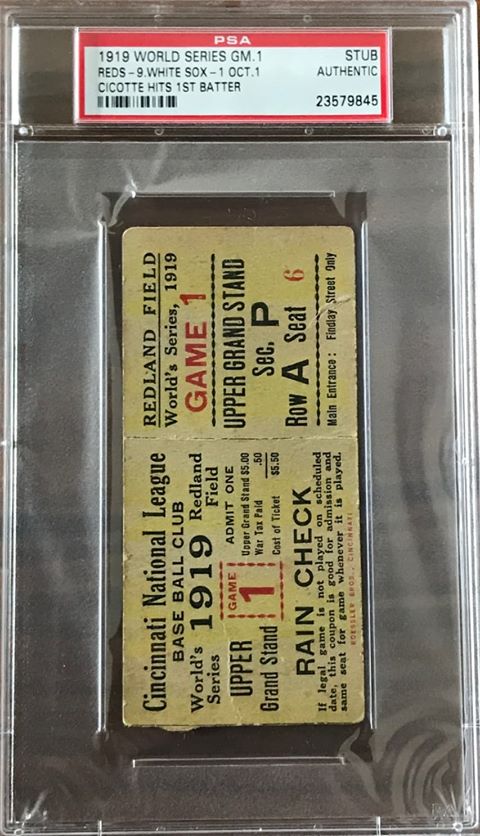
-
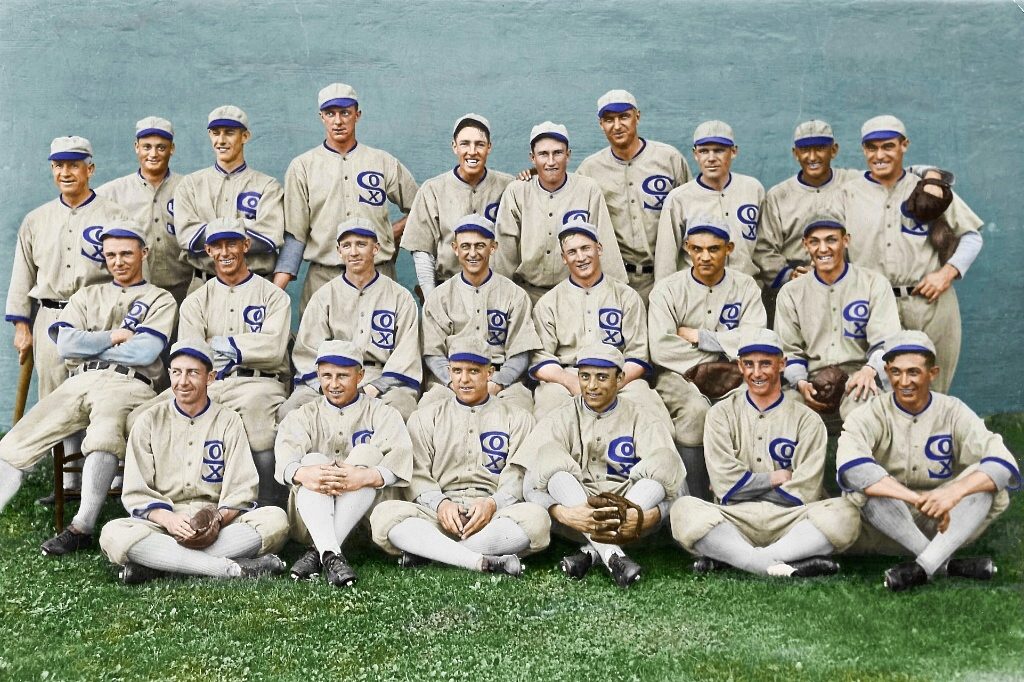
1919 White Sox -
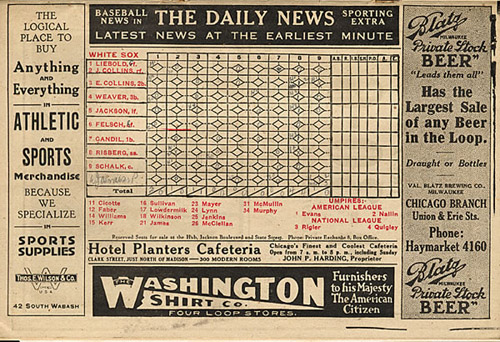
Rare White Sox score card from the 1919 World Series -
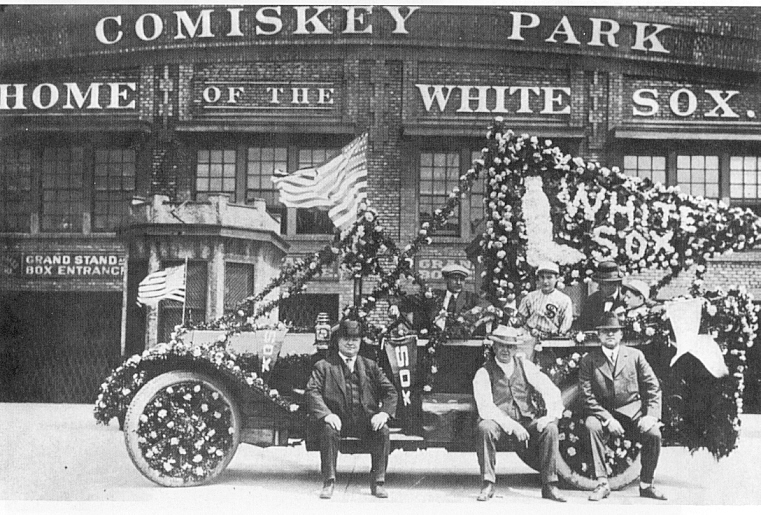
Comiskey Park, 1919 -
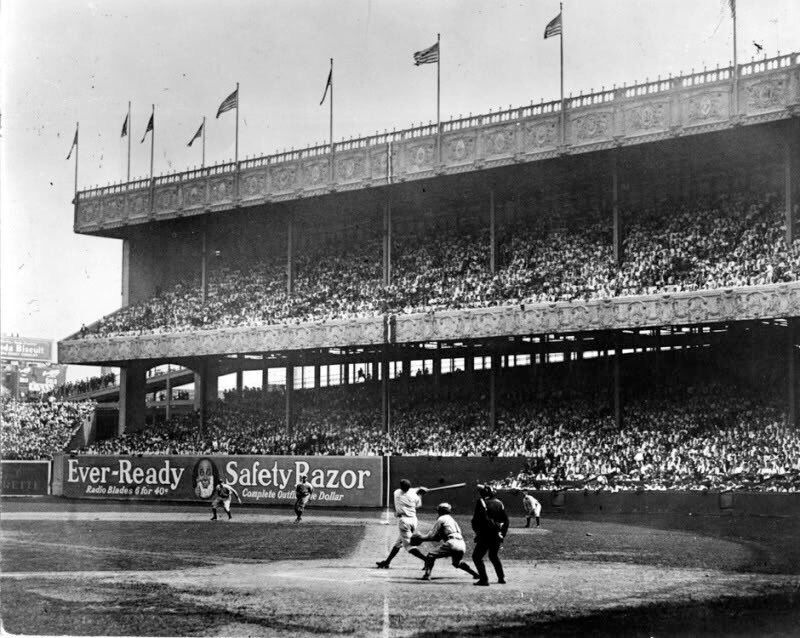
Polo Grounds in ca 1919 -
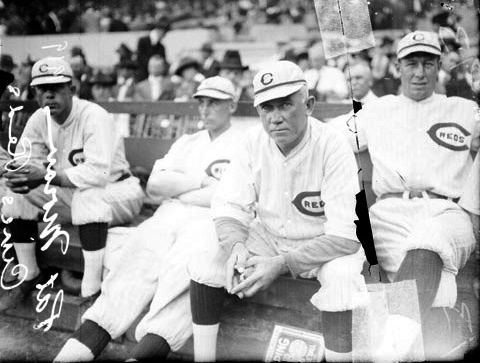
Reds manager Pat Moran during the 1919 World Series. Edd Rousch on the bench -
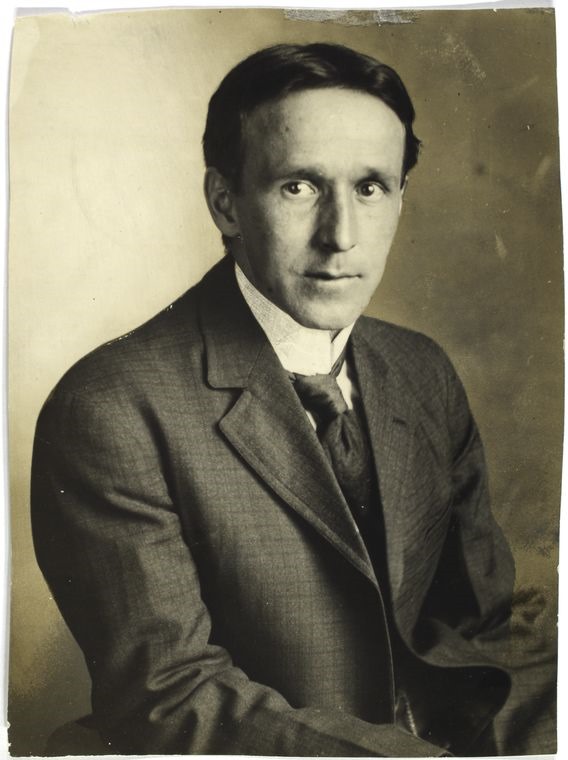
Hugh Fullerton, 1964 Spink Award winner, noted “Seven Suspicious Plays” in the 1919 World Series -
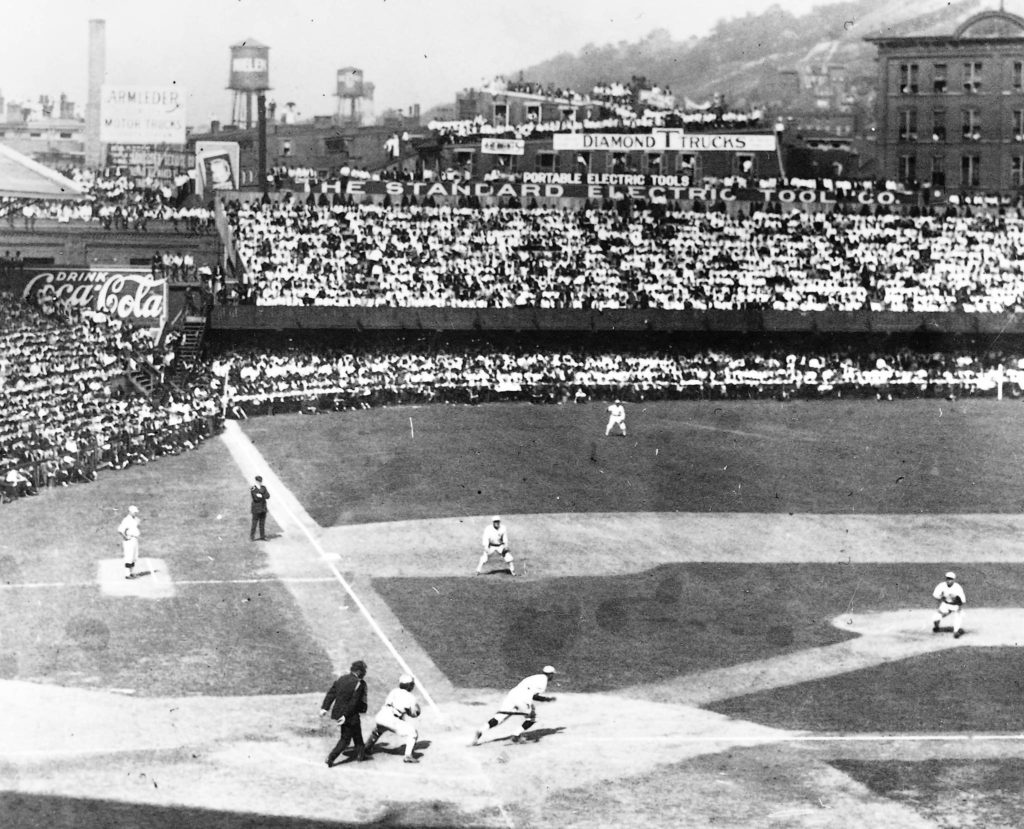
1919 World Series -
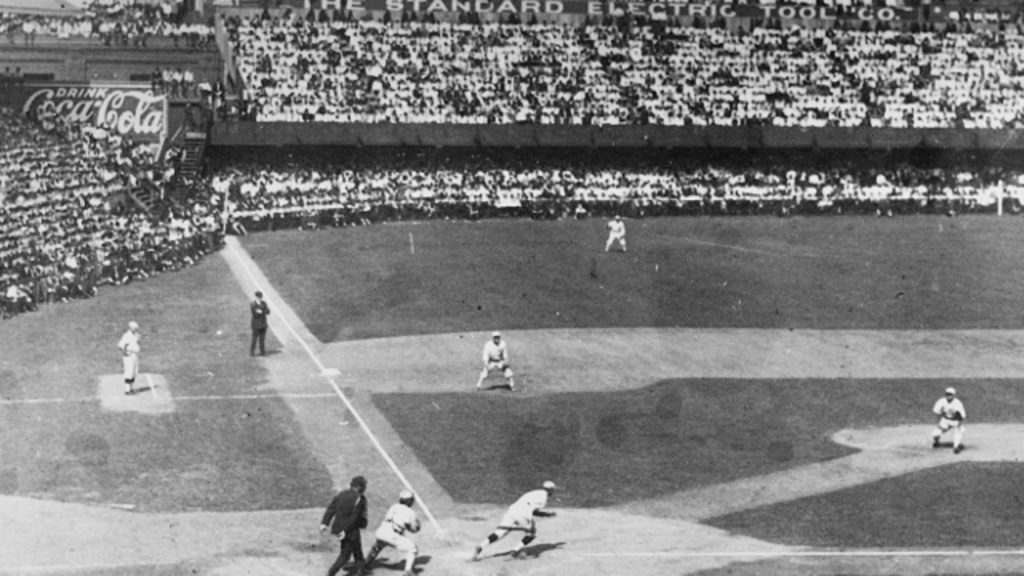
Scene from the 1919 World Series -
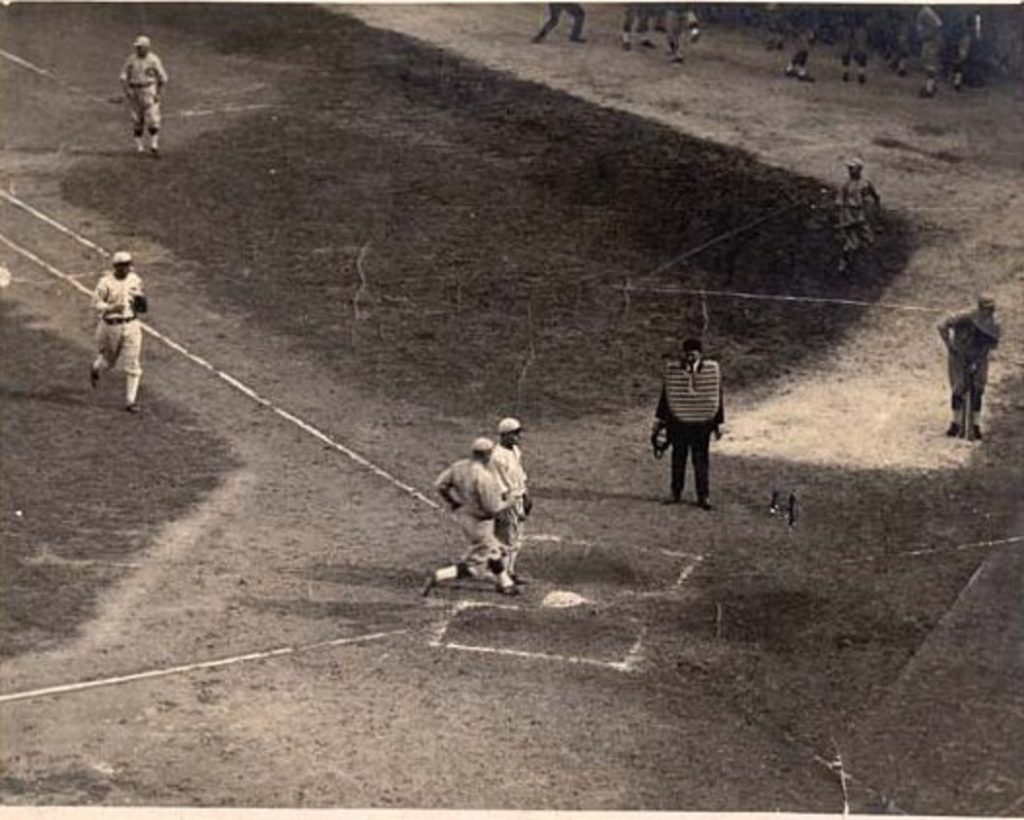
Scene from the 1919 World Series -
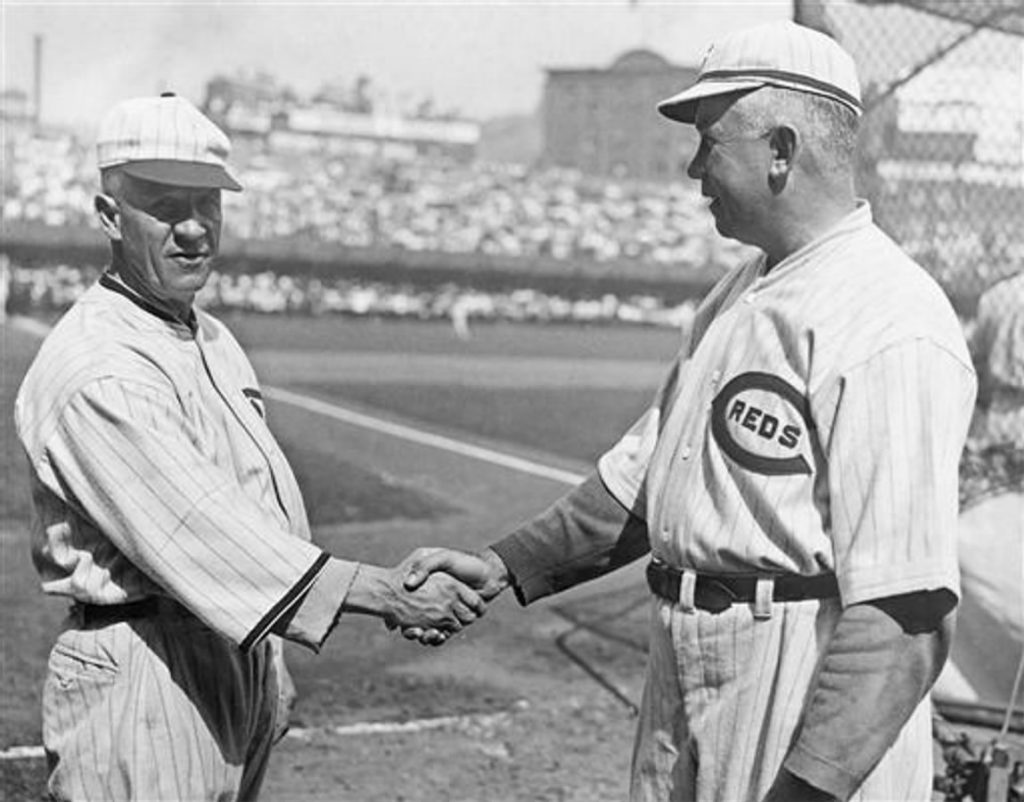
Kid Gleason and Pat Moran from the 1919 World Series -
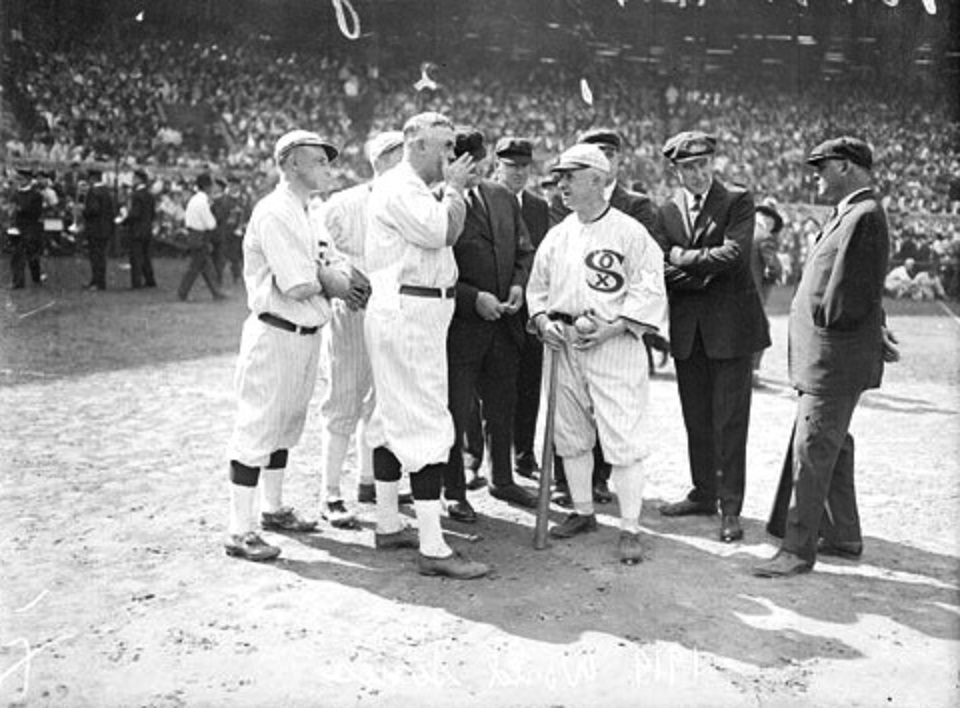
1919 World Series conference at the plate -
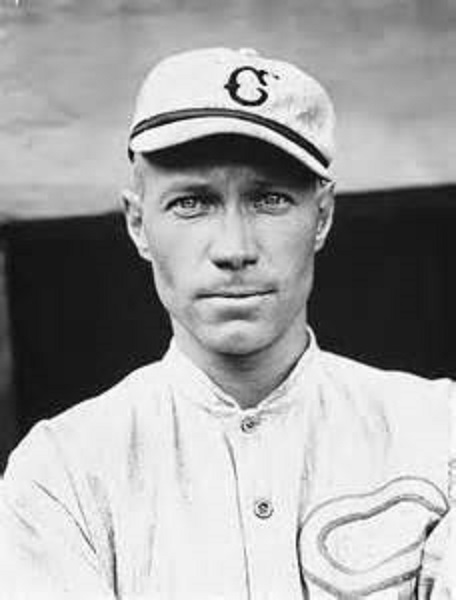
Reds’ Morrie Rath who was hit on the first pitch of the 1919 World Series by Eddie Cicotte, signaling the fix was on. -
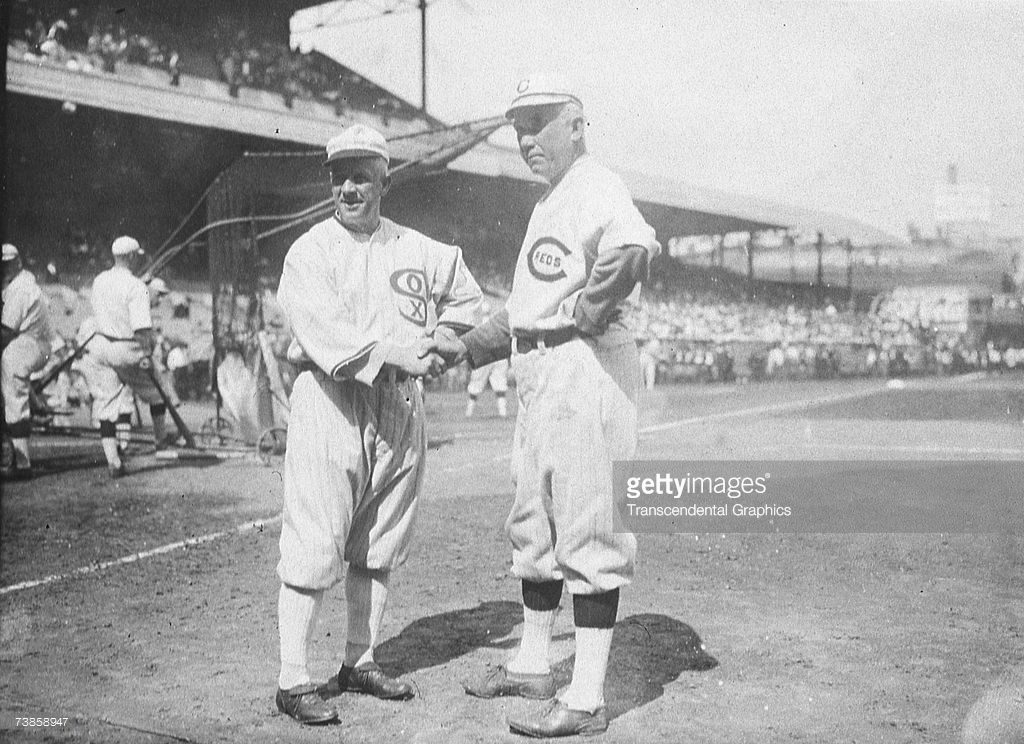
Kid Gleason shakes hands with Pat Moran before the start of the 1919 World Series -
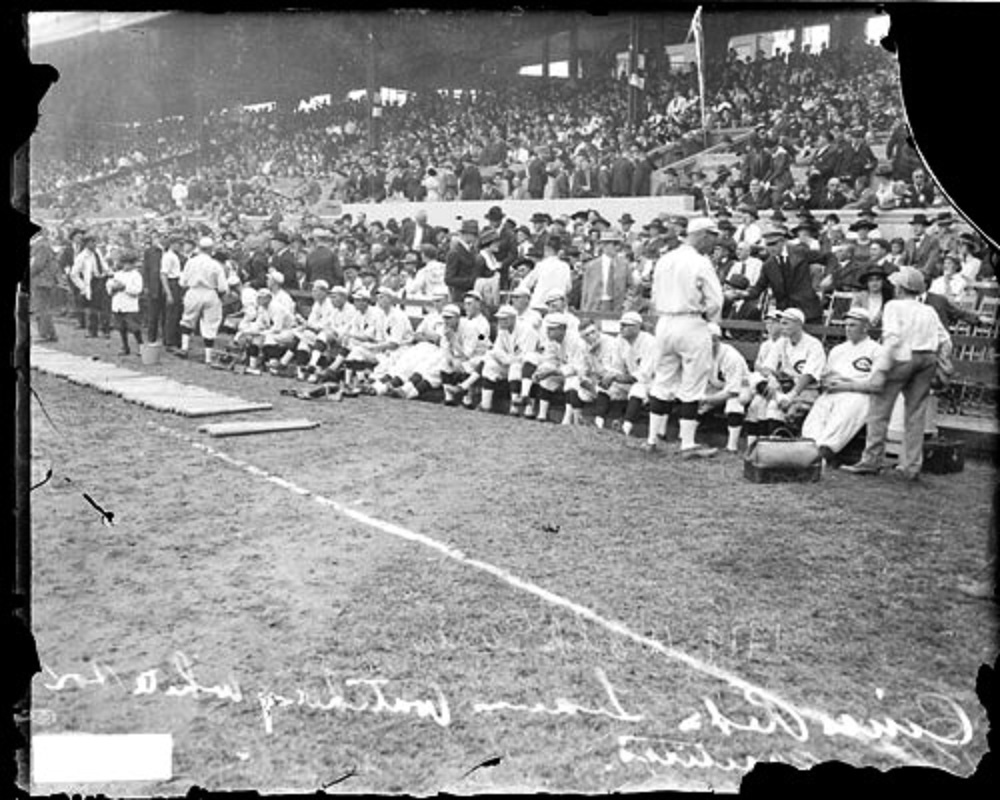
Red bench at Redland Field during the 1919 World Series -
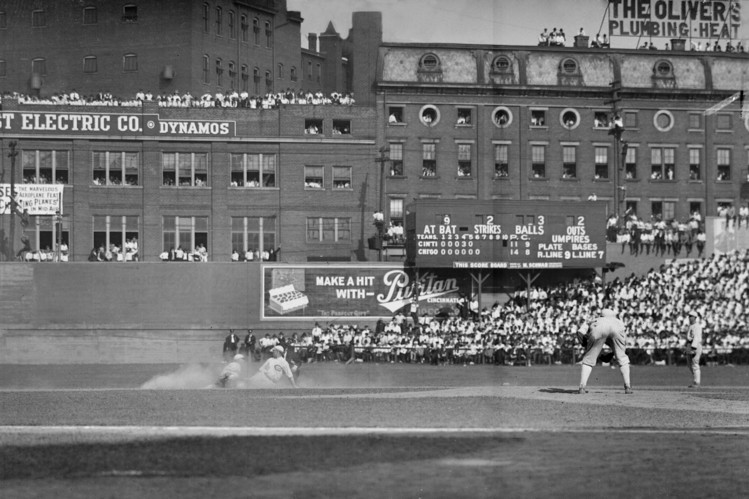
Scene from the 1919 World Series -
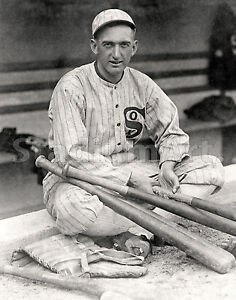
-
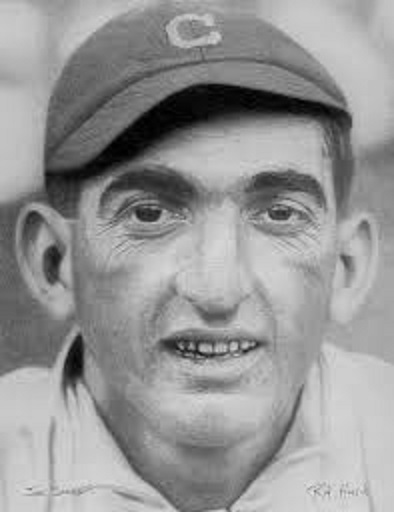
Jackson early in his career -
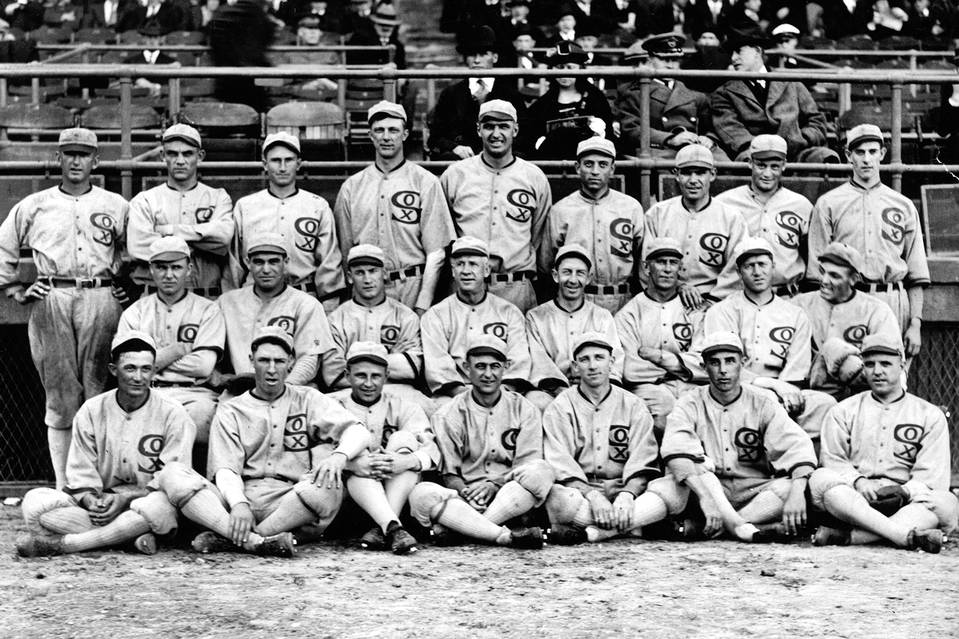
1919 White Sox (player identifications available upon request) -
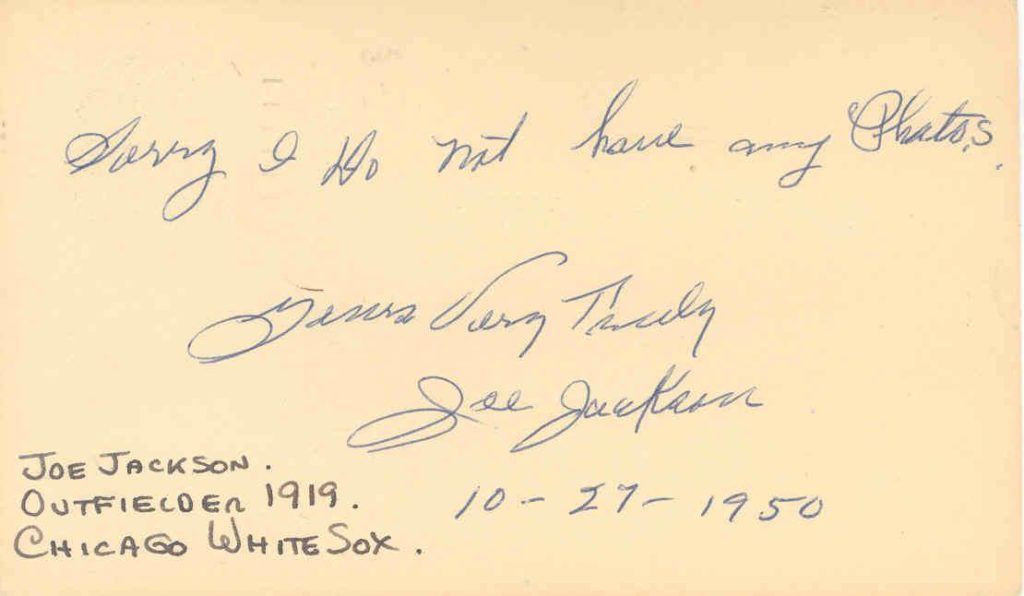
Was Joe Jackson illiterate? Here’s his signature, but did wife Katie write it? -
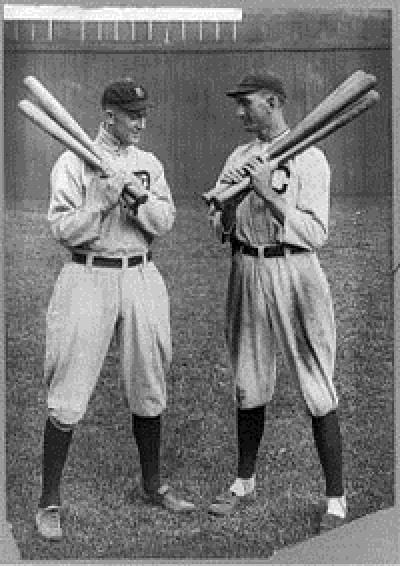
Ty Cobb and Joe Jackson -
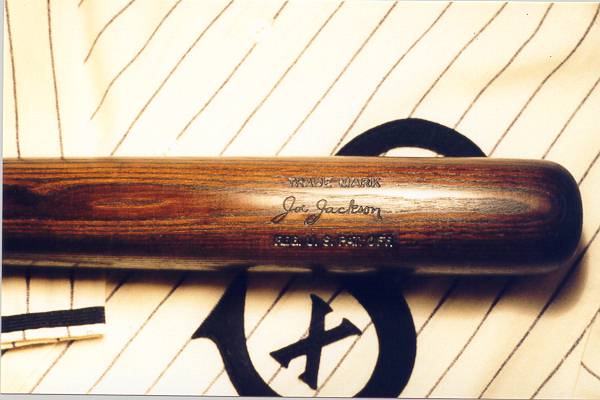
Black Betsy, Jackson’s bat from 1908-1920 -
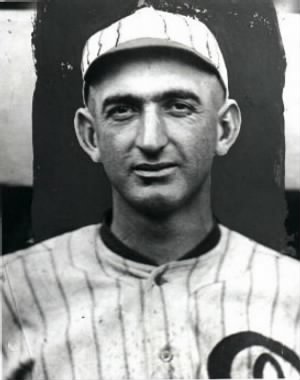
Shoeless Joe Jackson in 1917 -
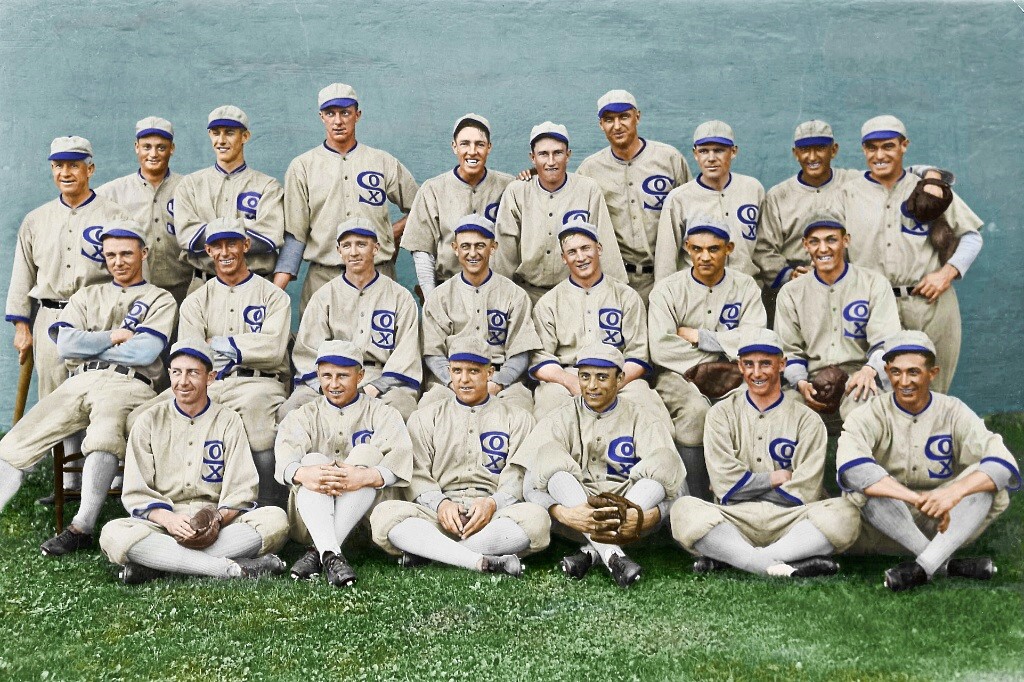
1919 White Sox (ID’s available upon request) -
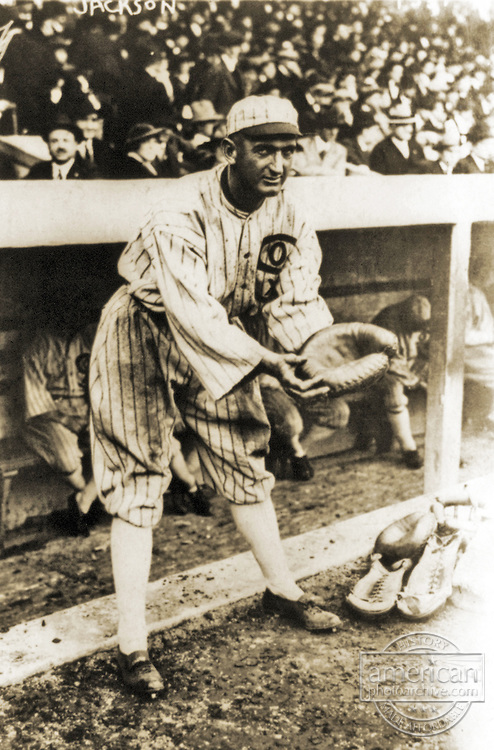
Not sure what he’s doing with a cacher’s mitt here! -
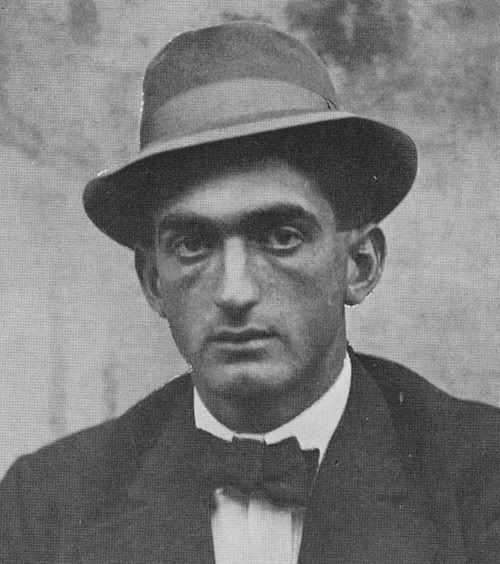
Joe at about the time of his lifetime ban from baseball -
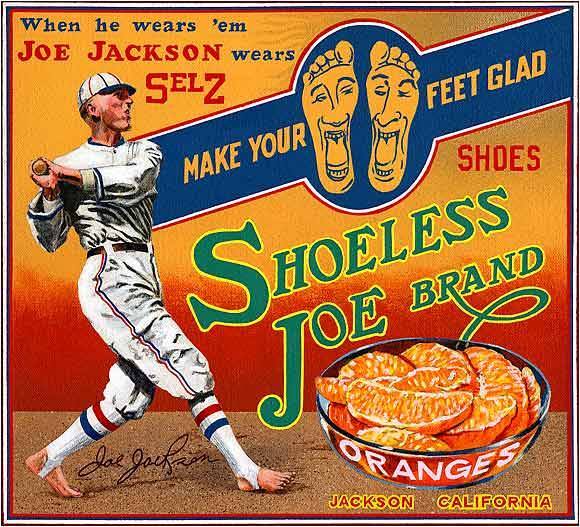
Another Look at the 1919 World SeriesShoeless Joe Jackson, Part Three: “Joe and the Tainted $5,000
“There are things in this world to be regarded above money – keeping faith in your friends, for instance. All of which goes to show that you don’t have to know how to read and write to be a man of principle and conscience.” –Joe Jackson
In today’s essay, I’ll address the question of whether Joe Jackson took $5,000 of the gamblers’ money and what it means to his involvement in the plot to throw the 1919 World Series.
In the featured photo below, we see Joe Jackson from early in his career with Cleveland, beautifully colorized by our resident baseball artist, Don Stokes.
Like everything else associated with the Black Sox scandal, the issue is confusing and can be interpreted numerous ways, adding fuel to partisans on both sides.
DID JOE JACKSON RECEIVE $5,000 FROM THE GAMBLERS?
The short answer is “yes,” but there’s a lot more to the story.
WHO GAVE HIM THE MONEY?
Teammate and friend Lefty Williams.
DID ACCEPTING THE $5,000 FROM LEFTY WILLIAMS HURT HIS REPUTATION?
Yes, it was a huge mistake, as it made his later protestations of innocence much harder to swallow, for even his most staunch supporters.
WHEN DID HE RECEIVE THE MONEY?
He told two versions. In his 1920 grand jury testimony, he said he got it after Game Four or Five; in the 1924 Milwaukee trial, in which he sued the White Sox for back pay, he said he got it after the last game.
WHY DID LEFTY WILLIAMS SAY HE GAVE JOE THE MONEY?
Williams said he used Joe’s name to get more money from the gamblers, and then felt for this reason that he “owed” it to Joe. One explanation holds that Joe’s status as a celebrity and a star player was beneficial to the plotters. They wanted his name associated with the fix to give it more credibility, whether he was an active participant or not. In that sense, it may have been worth it to them to have Joe compromised by giving him money. The gamblers could spread the word that “Jackson’s in on it”; and, as a key player, that most certainly would have affected the odds.
This notion was given credence in Lefty Williams’ testimony in the 1924 Milwaukee trial when he said under oath that he “used Jackson’s name in the meetings with the gamblers [meetings Joe did not attend] without Jackson’s knowledge or permission.” Jackson also claimed Williams told him “he used my name in order to wring more money out of certain fellows supposed to be gamblers.”
WHAT WAS JOE’S EXPLANATION AS TO WHY HE GOT THE MONEY?
He said he didn’t know why it was given to him, other than the gamblers and plotters wanted him associated with the fix. He always claimed he did nothing to earn it. He played his best the entire Series, and his stellar play proved it.
WHAT WAS JOE’S FIRST REACTION WHEN HE GOT THE MONEY?
He said he made attempts see White Sox owner Charles Comiskey and Secretary Harry Grabiner to give them the money or at least inform them as to what had transpired. He claimed he was rebuffed in these efforts and told to keep the money. There is no solid evidence that he made the attempt to see Comiskey, only Joe’s word. The evidence for the Grabiner rebuff is much stronger. At the 1924 Milwaukee trial, 11 of the 12 jurors believed Joe on this point.
WHAT DID JOE SAY ABOUT THE MONEY IN THE 1924 MILWAUKEE TRIAL?
He reiterated his claim that he tried to see Comiskey and Grabiner as soon as he received the money. He gave this explanation as to why it was given to him and why he took it: “He [Williams] didn’t want the money, and I thought just this way, since that lousy so-called gambling outfit had used my name, I might as well have their money as for him [Williams].”
WHAT DID JOE DO WITH THE MONEY?
There are differing accounts, but they all seem to point in the same direction: that Joe viewed the money as “tainted.”
According to biographer Donald Gropman: “Neither Joe nor his wife Katie believed the money was theirs, to spend on themselves. They put it in savings and let it earn interest. After Katie death, it was donated to the American Heart Fund and the American Cancer Society.”
In the 1924 Milwaukee trial, Katie also said that she used some of it trying to save Joe’s sister Gertrude, who was hospitalized. Gene Carney makes an interesting point: “Some believe it is more likely that he regarded money the old-fashioned way, as something you earned; so because in his mind he had done nothing to earn this money, it was tainted, and he was reluctant to spend it except to help others.”
ASSUMING HE ACCEPTED THE MONEY, DOES IT REALLY MATTER IF, AS HE ALWAYS MAINTAINED, HE DID NOTHING TO EARN IT ON THE FIELD? IN OTHER WORDS, WAS HE UNDER A MORAL OBLIGATION NOT TO ACCEPT MONEY, NO MATTER WHAT?
Again, it was a huge mistake for him to accept tainted money. It was damaging to his reputation and made his later protestations of innocence much harder to believe. But if someone wanted to give him money, after his name had been illicitly dragged into the plot, did he have a moral obligation not to accept it as long as he didn’t allow it to influence his actions? And according to his 1924 testimony, he didn’t get it until after the Series was over. In his defense, most objective historians conclude he played to win the entire Series; so whether it was the right moral decision or not, the money apparently did not influence his play.
CAN YOU SHED MORE LIGHT ON THE 1924 MILWAUKEE TRIAL?
In the trial, the jury was given questions to address regarding the $5,000, and Jackson’s involvement. Some of these questions included:
1. “Did Williams give Jackson the money before all the games in the Series were played?” The jury responded 11-1, “No.”
2. “At the time Williams gave Jackson the money, did he tell Jackson that there had been an agreement between certain ballplayers to lose or ‘throw’ the games, and that the $5,000 was his [Jackson’s] share of the money received by the players for their part in the agreement?” They responded 11-1, “No.”
3. “Did Joe Jackson unlawfully conspire with Gandil, Williams, and other members of the White Sox Club, or any of them, to lose or ‘throw’ any of the baseball” games of the 1919 World Series to the Cincinnati Baseball club?” Again, they responded 11-1, “No.”
4. “Did Harry Grabiner mislead Joe Jackson about the reserve clause and thus Jackson was entitled to his back pay?” The jury responded 11-1 in Jackson’s favor.
These were points contested by Comiskey; and the jury, after considering all the evidence and listening to Joe’s words, his tone of voice, and watching his facial expressions, decided in his favor. In his testimony, Comiskey conceded that Joe had played all the games of the 1919 World Series to win.
It should be noted the judge in the trial set aside the jury verdict and the case was settled out of court. Charles Comiskey’s grandson has sworn that the Comiskey family’s belief was that “Jackson neither conspired to throw nor attempted to throw any or all games in the 1919 World Series.”
DID THE WHITE SOX MANAGEMENT HAVE A VESTED INTEREST IN SEEING JOE INDICTED OR COMPROMISED?
Yes, because he was in a unique position to expose Comiskey’s effort to cover-up the scandal after he was informed about it. Read the following statements:
Writer William Herzog: “What made the situation dangerous was the simple fact that the circumstances and facts that exonerated Jackson condemned Comiskey.”
Chicago lawyer David Carlson: “It’s my theory that Alfred Austrian and Comiskey wanted Jackson to confess so they could compromise him. Jackson was in the unique position of substantially embarrassing Comiskey by telling of his attempts to inform him of the fix. If Jackson were indicted, however, he would be discredited. I think the evidence supports this theory.”
DOES ALL THE FOREGOING PROVE JOE’S INNOCENCE?
Sadly no. There are many ways to interpret the above information. Bottom line: Joe took the money and kept it. In his defense, White Sox management may have instructed him to keep it after he brought to their attention. But all accounts seem to point in the direction that he did not spend it on himself as he regarded it as unearned and tainted.
WHAT’S THE FINAL WORD? IS THERE A SIMPLE ANSWER?
There’s probably no topic that’s more emotionally charged when discussing the 1919 World Series than Joe Jackson’s guilt or innocence. It’s still hotly debated almost 100 years later. It was not my intent to settle the issue today; only to present the known facts involving his acceptance of the $5,000 as objectively as I could.
If you’ve read this far, you might agree that to simply say he was guilty because he took the gamblers’ money given to him by Lefty Williams – as the conventional wisdom tells us to do – is a superficial reading of a complex situation. There’s more to the story than that. One must also weigh the fact that Joe seemed to live the rest of his life with a clear conscience and went to his grave without ever changing his story that he played all games hard and all games to win, and did nothing on the field to earn the money given to him. He felt his name was used by the gamblers and the plotters illicitly.
If you thought Joe was innocent before reading this, you are now probably even more convinced. Likewise, if you thought he was guilty, probably nothing has changed your mind.
“What all this says about the cover-up of the scandal, and Joe Jackson’s character, is a matter of interpretation – and fuel for the hot stove!” –Gene Carney
Gary Livacari
Photo Credits: All from Google search
Check out my two books, both now available on Amazon in e-book and paperback: “Paul Pryor in His Own Words: The Life and TImes of a 20-Year Major League Umpire”and “Memorable World Series Moments.” All profits go to the Illinois Veterans FoundationCheck out my book, “Memorable World Series Moments,” now available on Amazon in e-book and paperback. All profits go to the Illinois Veterans Foundation: https://www.amazon.com/Memorable-World-Moments-Garys-Reference-ebook/dp/B077L85D7C/ref=sr_1_1?ie=UTF8&qid=1547650967&sr=8-1&keywords=Memorable+World+Series+moments
We are a participant in the Amazon Services LLC Associates Program, an affiliate advertising program designed to provide a means for us to earn fees by linking to Amazon.com and affiliated sites. Click here to view Amazon’s privacy policyhttps://www.facebook.com/Don-Stokes-Old-Time-Baseball-Colorizations-923346241033
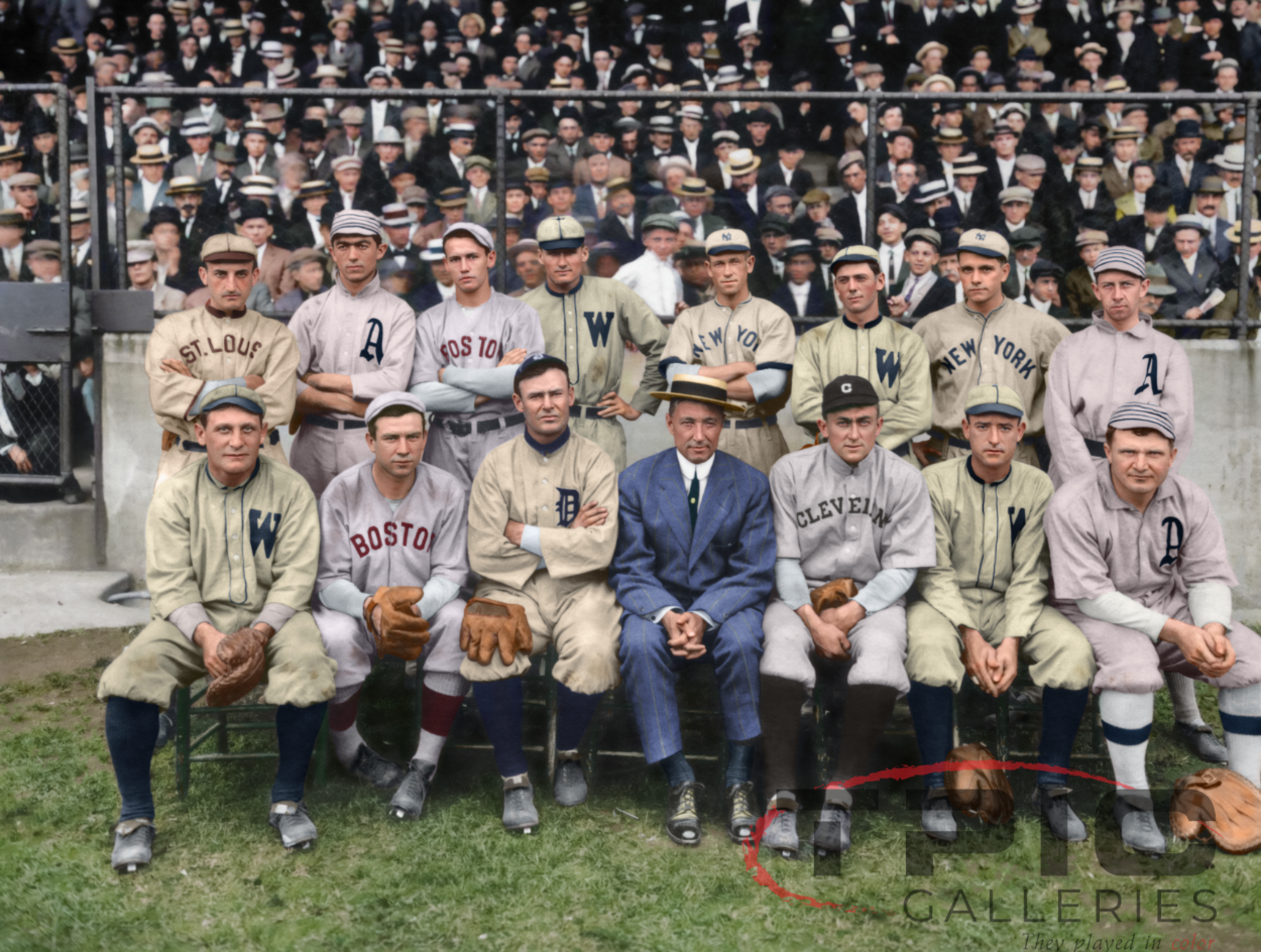
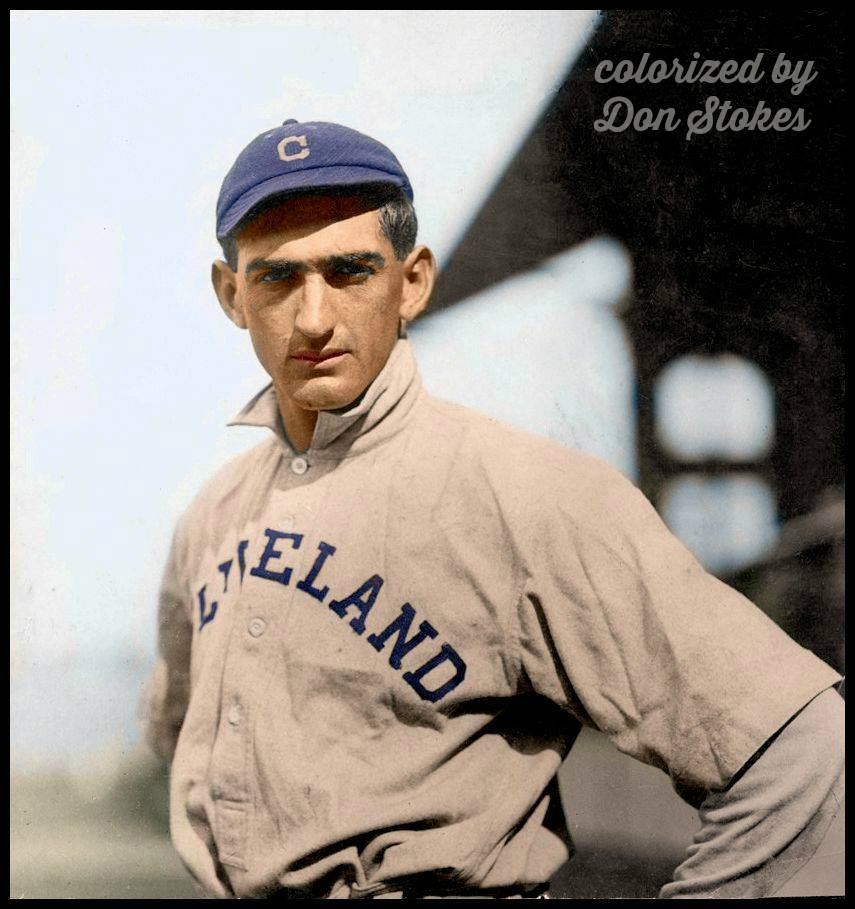

I was looking for David Carlson who I believe studied the scandal. Do you know of any way to contact him?
Sorry, can’t help you there.